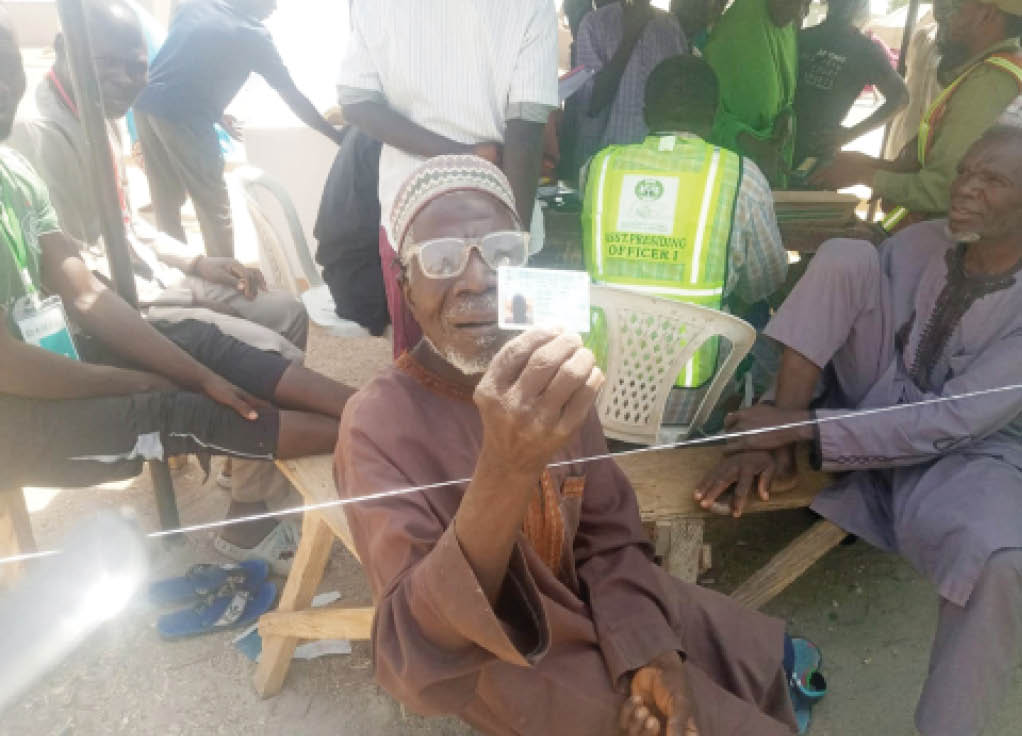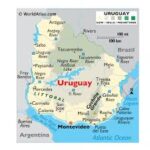By Abdullateef Salau, Faruk Shuaibu (Abuja), Ado A. Musa (Jos), Hassan Ibrahim (Bauchi) & Usman A. Bello (Benin)
People with disabilities (PWDs) yesterday expressed mixed feelings over the treatment accorded to them at the poll.
The Independent National Electoral Commission (INEC) had said it would give priority to pregnant women, senior citizens and PWDs.
The Commission said it had taken cognisance of these categories of persons, and that they would be attended to according to their peculiarity at polling units.
Daily Trust reports that pregnant women, senior citizens and PWDs were given priority at polling units over others.
Those who spoke to our correspondents said they voted without stress as they were attended to immediately they arrived at the polling units.
Voters applaud security operatives’ conduct at polls
Voters flee polling units as Boko Haram strikes in Borno
However, visually-impaired persons in Plateau State lamented lack of braille to guide them to vote for their preferred candidates.
Braille is a form of written language for blind people, in which characters are represented by patterns of raised dots that are felt with the fingertips.
They said INEC had earlier promised to provide braille to guide them during the election but expressed dismay that on getting to the polling units, they were given conventional ballot papers.
Umar Tahir said the electoral officials asked some people to guide us to cast the ballot but we were not sure if the assistants did not direct us to vote against our preferred parties.
Tahir said: “I’m not satisfied with the election even though I voted. I can’t see and braille, which will help know my party, was not provided. I know I can be misled. INEC didn’t try for us.”
Sani Lawan, another blind person, said: “We have cast our vote but we were not happy with the process because braille was not provided.
“We asked people around to indicate to us the party we want to cast our votes for but we were not sure if the party we support was the one indicated to us because we can’t see. We will not forgive whoever shows any party different from our choice.”
The chairman of PWDs in Kabusa, FCT, Peter Akapin, said three persons with disabilities in the community did not vote after INEC changed their polling units without informing them.
He said they were disappointed after getting to a polling unit to vote but told to go to another area.
Peter said the affected persons went back home.
He said “In some places, we were informed that PWDS were giving first right to vote but here they changed our polling unit without our knowledge.”
BVAS fails to accredit 80-yr-old blind man in Bauchi
An 80-year-old blind man, Bala Saidu, has expressed disappointment over his failure to exercise his franchise after repeated failures of the Bimodal Voter Accreditation System (BVAS) machine to accredit him.
The incident happened at the Bakin Dutse polling unit 088 Duguri, Alkaleri Local Government Area of Bauchi State.
Speaking with journalists, the octogenarian said, “I came out early in the morning to vote but unfortunately the machine declined to capture my thumb and face.
“I am not happy that the machine deprived me of voting in this election. The desire to elect good people to lead us in this country drove me to vote despite my age and condition.”
INEC officials at the polling unit declined to comment on the BVAS’ failure to accredit the octogenarian.
‘We voted without stress’
Meanwhile, some people with disabilities in Edo State commended the electoral body for making voting less stressful for them.
Kingsley Omolabi, who cast his vote at Ward unit 19, Oredo Local Government Area in Edo State, said “It wasn’t difficult for me to vote because of my disability.”
Omolabi said: “When I got to my polling unit to vote, the INEC officials called me and asked for my voter’s card and they accredited me, gave me a ballot paper and I voted.
“I didn’t find it difficult to cast my vote. And I am happy that the process is stress free.”
At Ikpoba Okha Local Government Area, Georgina Maduka, an 82-year-old woman using a walking stick, said: “I didn’t have a problem because of my condition. The moment I arrived at the polling unit with a walking stick, they ushered me in for voting.
“I have voted and I am sure my vote will count,” she said.
The Executive Director of Qualitative Magazine, Chris Agbo, who is also a PWD, commended INEC for educating election officials and ensuring that PWDs get priority treatment at polling units.

 Join Daily Trust WhatsApp Community For Quick Access To News and Happenings Around You.
Join Daily Trust WhatsApp Community For Quick Access To News and Happenings Around You.


